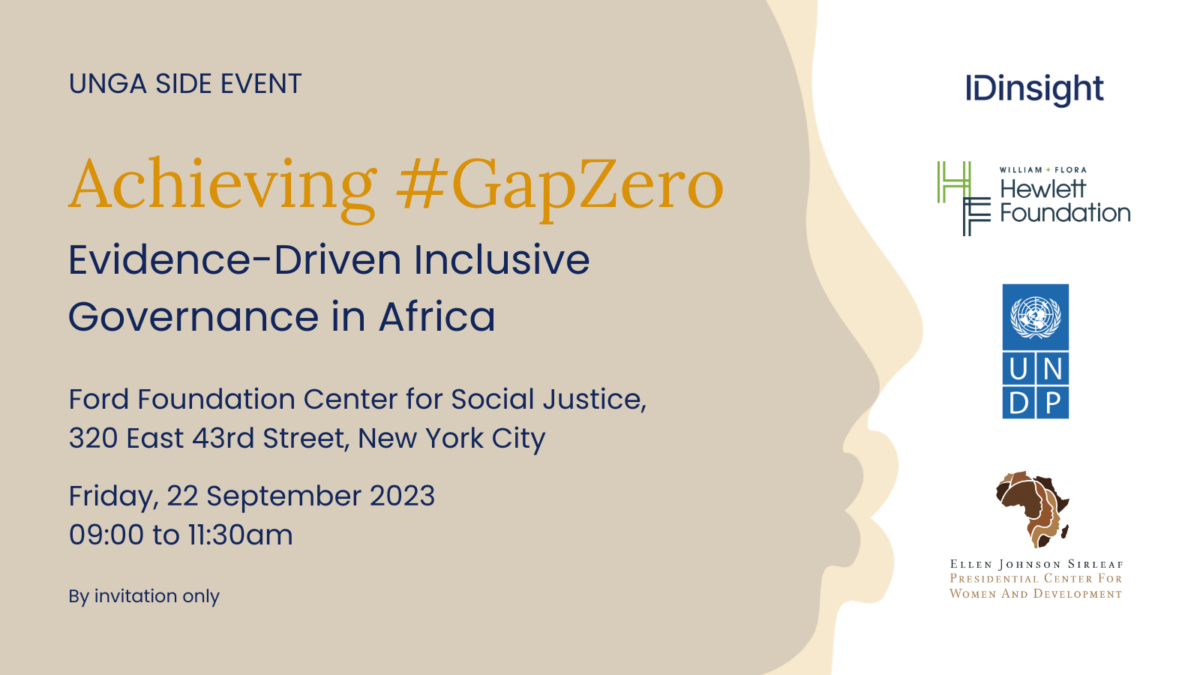
Achieving #GapZero: Evidence-driven inclusive governance in Africa

Globally, persistent and debilitating structural and systemic biases prevent a balanced representation of women in public leadership. These barriers bear out in bleak statistics illustrating low women’s representation in governance across the African continent. Further still, even with existing representation, the amount of influence and power to effect change is limited by the type of positions women hold. All this is despite the aspirations and commitments articulated in the United Nations Sustainable Development Goals, and African Union Agenda 2063, and enshrined in national constitutions or quotas. Underpinning the gender disparity lies the implicit misconception that inclusive governance can be achieved with an imbalanced and inequitable representation.
As representatives from across the continent and beyond come together in New York this September, there is an opportunity for a renewed commitment to support leaders’ collective understanding of what works to ensure women’s political participation at all levels. This event will bring together representatives from government, philanthropy, multilateral agencies, research, and civil society to reflect on past experiences and identify practical steps towards the continued leadership transformation on the continent. It will focus on what evidence says about the barriers and successes to fostering women’s political participation, building a case for more partnership, knowledge-building, and financing to identify and propagate solutions.
